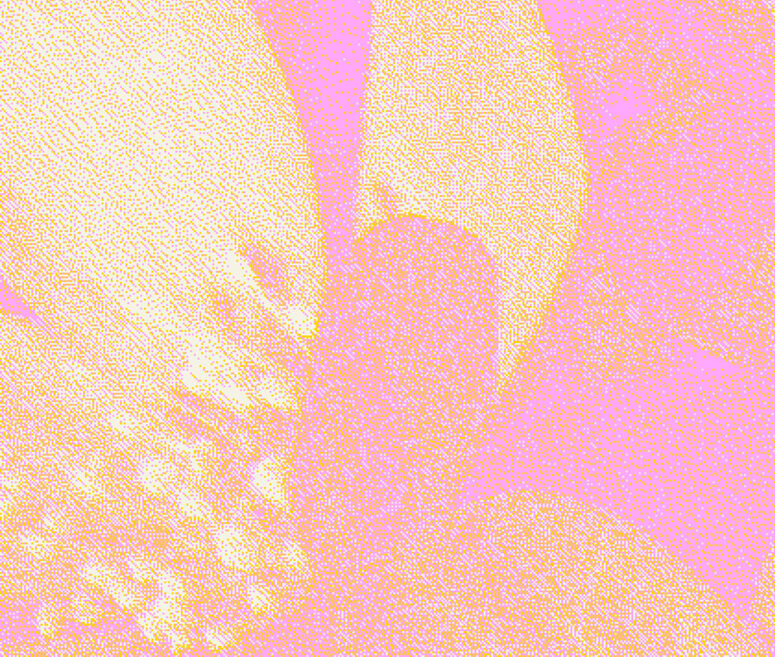“Thinking Like a Mountain” is GAMeC’s invitation to take a “pas de côté”. This step aside allows us to look from a distance and renew our relationship with nature and collectivity through a new point of view and unique artistic processes. In the same spirit, I dedicate today’s In Brief to looking into our relationship with art differently. This opportunity not only entices an alternative view on art but also provides a point of view that is wholly integrated into our individual and communitarian lives. Such an active part of our existence also represents an accessible, everyday tool for reading our world.
In France, we use the popular expression “Remettre l’église au centre du village”, which can be translated as “Putting the church back in the village center”. It expresses the intention to put things in order, as they should or must be. Despite its old-timey, supposedly conservative character, leading the expression to be easily misunderstood, I enjoy it as a way to recall the oblivious need to refer to a common midpoint. Communities need to find each other, make collectivity, and pull themselves out of routine and individuality through moments of recollection, alternative reflection, and true collectiveness. Here, I visualize GAMeC’s artistic proposals as putting the artist at the center of the community, addressing the apparently contradictory need to find one another by encountering something unfamiliar, reflecting together beyond artistic practices and individual tastes.
France, where public spending on culture and art is record-breaking, has always been considered the cradle of artistic innovation and home to artists of all origins. How could we contradict these statements a few days after the opening ceremony of the Paris 2024 Olympic Games?! Despite hosting unlimited cultural opportunities and the world’s most extensive network of venues dedicated to artistic creation and dissemination, we are witnessing a transformation of cultural practices and an unprecedented challenge to the creative and cultural world. I think taking up the challenge will soon become a matter of survival. The artistic world has to take on an unparalleled situation, crushed between smart working and digital habits, between criticism of cultural offerings and frustrated aspirations for participation that it struggles to understand, as well as inflation and the increasing cost for families to access culture. If read with intellectual honesty and clarity, surveys conducted in the last two years tell us that tomorrow’s public must be captivated by alternative proposals, less self-referential and more integrated with the uses and lives of families, businesses, and communities. Paradoxically, that same professionalization of the arts and cultural sector, which years ago enriched it and seemed to be its only way of redemption, now risks locking it up and bubble-wrapping it, excluding most of our communities.
Through GAMeC’s proposal, nature and community can represent this link between artistic proposals and our daily lives.
Way before us, Baudelaire stated (Elévation, Les fleurs du Mal, 1857): “Happy is the man who can with vigorous wing Mount to those luminous serene fields! The man whose thoughts, like larks, Take liberated flight toward the morning skies -Who hovers over life and understands without effort The language of flowers and voiceless things”. I am particularly drawn towards the expression “morning skies”; the poet seems to tell us that, without a daily connection to art, being it a book, a movie, an architectural or plastic work, life is incomplete. Moreover, “voiceless things” encloses everything that can take on the role of accessible emotions and thoughts. Artworks do that just as much as nature and “flowers” do. Such accessibility is the starting point of the biennial program, with the arrival of artists in our local areas in the name of sharing, debating, and balancing the local and the world, the contemporary day-to-day, and the heavy planetary questions.
It strikes me as highly relevant that the two-year program and the preparation of GAMeC’s new premises in the renovated Palazzetto dello Sport are being developed based on a profound reflection on the space art occupies in our daily lives as people and communities. “Let’s show what it’s for” seems to be the call taken up with boldness and inventiveness by GAMeC.
We are responsible for working on those “voiceless things” and answering the big questions that shake the members of our communities every morning. Best wishes to GAMeC and its community; this adventure’s success will be the salvation of our cultural and creative sector and our humanity!
Claudia Ferrazzi


